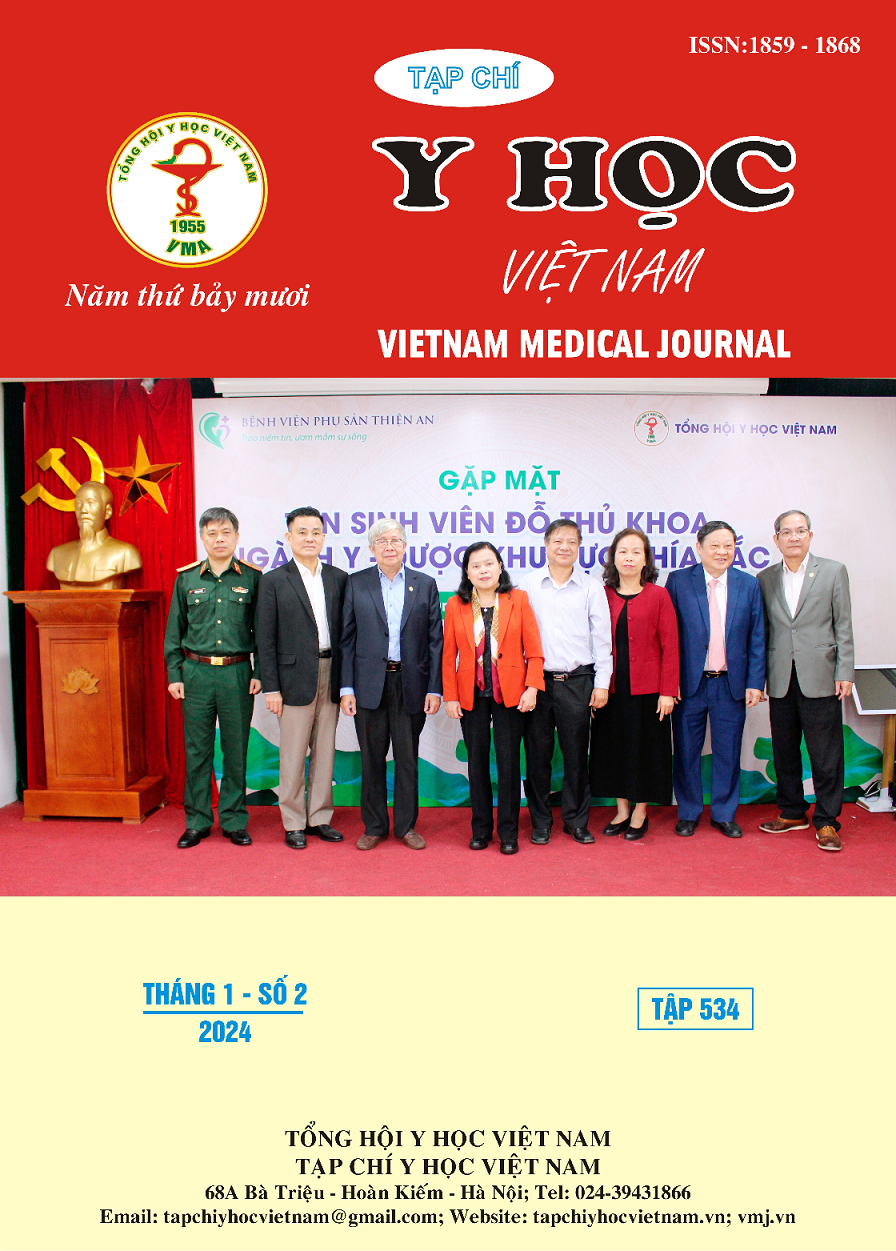THỰC TRẠNG LẠM ĐỤNG ĐIỆN THOẠI THÔNG MINH VÀ MỐI LIÊN QUAN ĐẾN TÌNH TRẠNG LO ÂU, TRẨM CẢM Ở SINH VIÊN ĐẠI HỌC NGÀNH ĐIỀU DƯỠNG
Nội dung chính của bài viết
Tóm tắt
Đặt vấn đề: Sau đại dịch COVID-19 lạm dụng điện thoại thông minh (ĐTTM) là vấn đề nổi cộm ở giới trẻ, đặc biệt là sinh viên ngành điều dưỡng. Nhiều nghiên cứu cho thấy tỷ lệ lo âu, trầm cảm ở sinh viên đang gia tăng đại dịch, dẫn đến nhu cầu tìm hiểu thông tin về vấn đề này. Mục tiêu: Mô tả thực trạng lạm dụng điện thoại thông minh trên sinh viên ngành Điều dưỡng; và mối liên quan giữa lạm dụng ĐTTM và thực trạng lo âu, trầm cảm của đối tượng sinh viên nói trên. Phương pháp: Nghiên cứu cắt ngang được thực hiện trên 248 sinh viên điều dưỡng tại hai trường đại học. Dữ liệu được thu thập dựa trên bộ câu hỏi tự điền gồm thông tin nhân khẩu học, thang đo lạm dụng điện thoại thông minh SAS- SV, và thang đánh giá lo âu, trầm cảm DASS-21. Kết quả: Sinh viên điều dưỡng tại hai trường ĐH có tỷ lệ lạm dụng ĐTTM cao chiếm 62,9%, trong đó SV năm thứ 2 có tỷ lệ lạm dụng cao nhất (35,9%). Tỷ lệ lo âu, trầm cảm ở nhóm SV này lần lượt là 75,8% và 89%. Có mối liên quan có ý nghĩa thống kê giữa lạm dụng ĐTTM và lo âu khi SV lạm dụng ĐTTM có tỷ lệ lo âu cao gấp 2,5 lần so với nhóm không lạm dụng ĐTTM. Không có mối liên quan giữa dấu hiệu trầm cảm và lạm dụng ĐTTM trong nghiên cứu này. Kết luận: Vấn đề lạm dụng ĐTTM và lo âu, trầm cảm là mối lo ngại ở sinh viên ngành điều dưỡng. Các trường ĐH nên có hoạt động phù hợp để làm giảm tỷ lệ sử dụng ĐTTM ở SV và các giải pháp hạn chế lo âu, trầm cảm.
Chi tiết bài viết
Tài liệu tham khảo
2. W. J. Gao và các cộng sự. (2023), "Relationship between depression, smartphone addiction, and sleep among Chinese engineering students during the COVID-19 pandemic", World J Psychiatry. 13(6), tr. 361-375.
3. Trọng Hà Đinh và các cộng sự. (2021), "Khảo sát tình hình sử dụng điện thoại thông minh ở sinh viên đại học trên địa bàn Hà Nội bằng thang điểm đánh giá nghiện điện thoại thông minh phiên bản rút gọn", Tạp chí Y học Việt Nam. 502(2).
4. Qiong Hu, Liu Qinxue và Wang Zongyuan (2022), "Meaning in life as a mediator between interpersonal alienation and smartphone addiction in the context of Covid-19: A three-wave longitudinal study", Computers in human behavior. 127, tr. 107058.
5. SK Kaushal và Kumar Rakesh (2016), "Factors affecting the purchase intension of smartphone: A study of young consumers in the city of Lucknow", Pacific Business Review International. 8(12), tr. 1-16.
6. Lusekelo Kibona và Rugina Juma Mdimu (2015), "A review on the impact of smartphones on academic performance of students in higher learning institutions in Tanzania", Journal of Multidisciplinary Engineering Science and Technology (JMEST). 2(4), tr. 673-677.
7. Yeon-Jin Kim và các cộng sự. (2018), "Effects of internet and smartphone addictions on depression and anxiety based on propensity score matching analysis", International journal of environmental research and public health. 15(5), tr. 859.
8. S Kiran, Sanjana J và Reddy NJ (2019), Mobile phone addiction: symptoms, impacts and causes-a review, Int Conf Trends Ind Value Eng Bus Soc Innov.
9. Đỗ Mười Thương Lê và các cộng sự. (2016), "Ảnh hưởng của việc sử dụng điện thoại thông minh đến chất lượng giấc ngủ và các yếu tố tâm lý của sinh viên trường cao đẳng Y tế Quảng Nam".
10. Lê Minh Luận (2017), Nghiện điện thoại thông minh và một số yếu tố liên quan ở sinh viên trường Cao đẳng y tế Đồng Tháp năm 2017.


